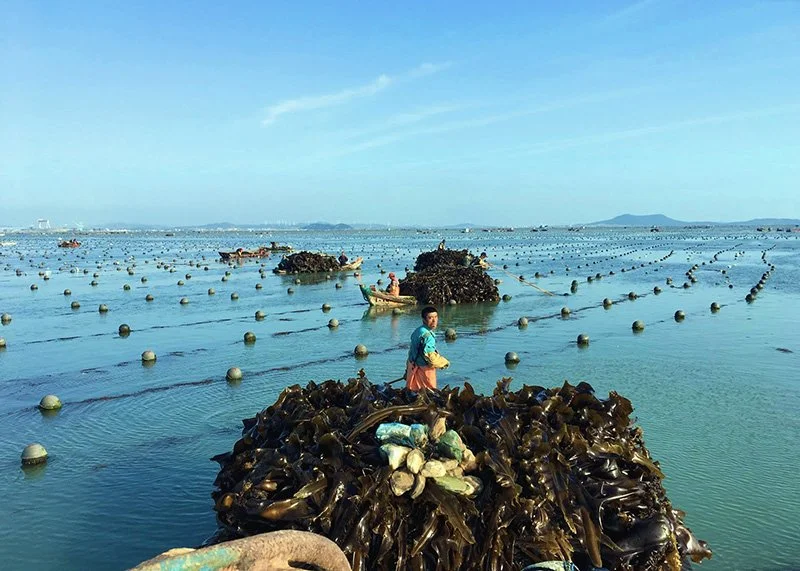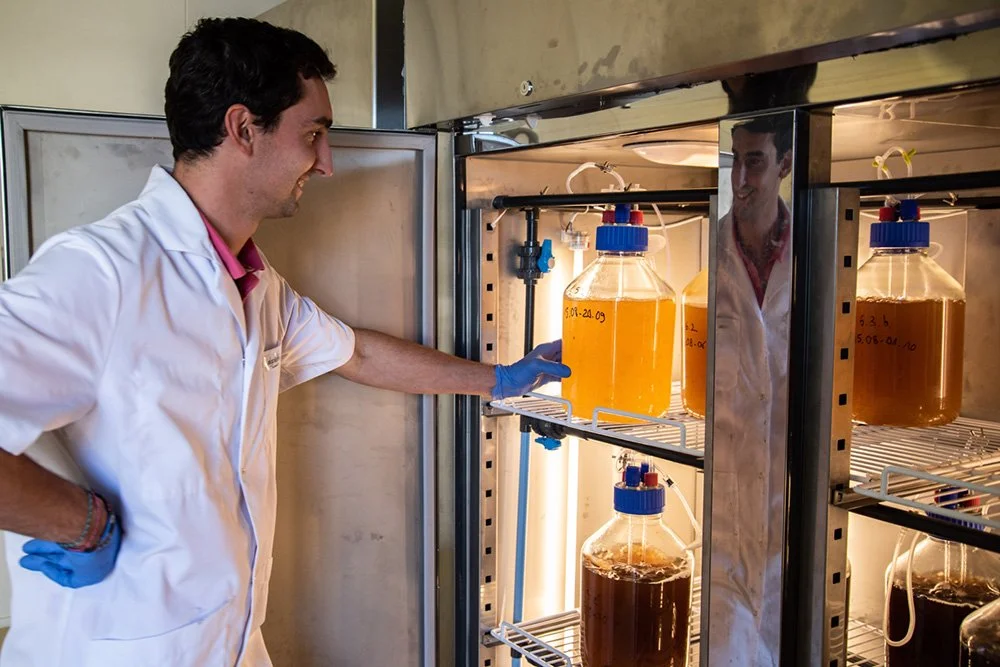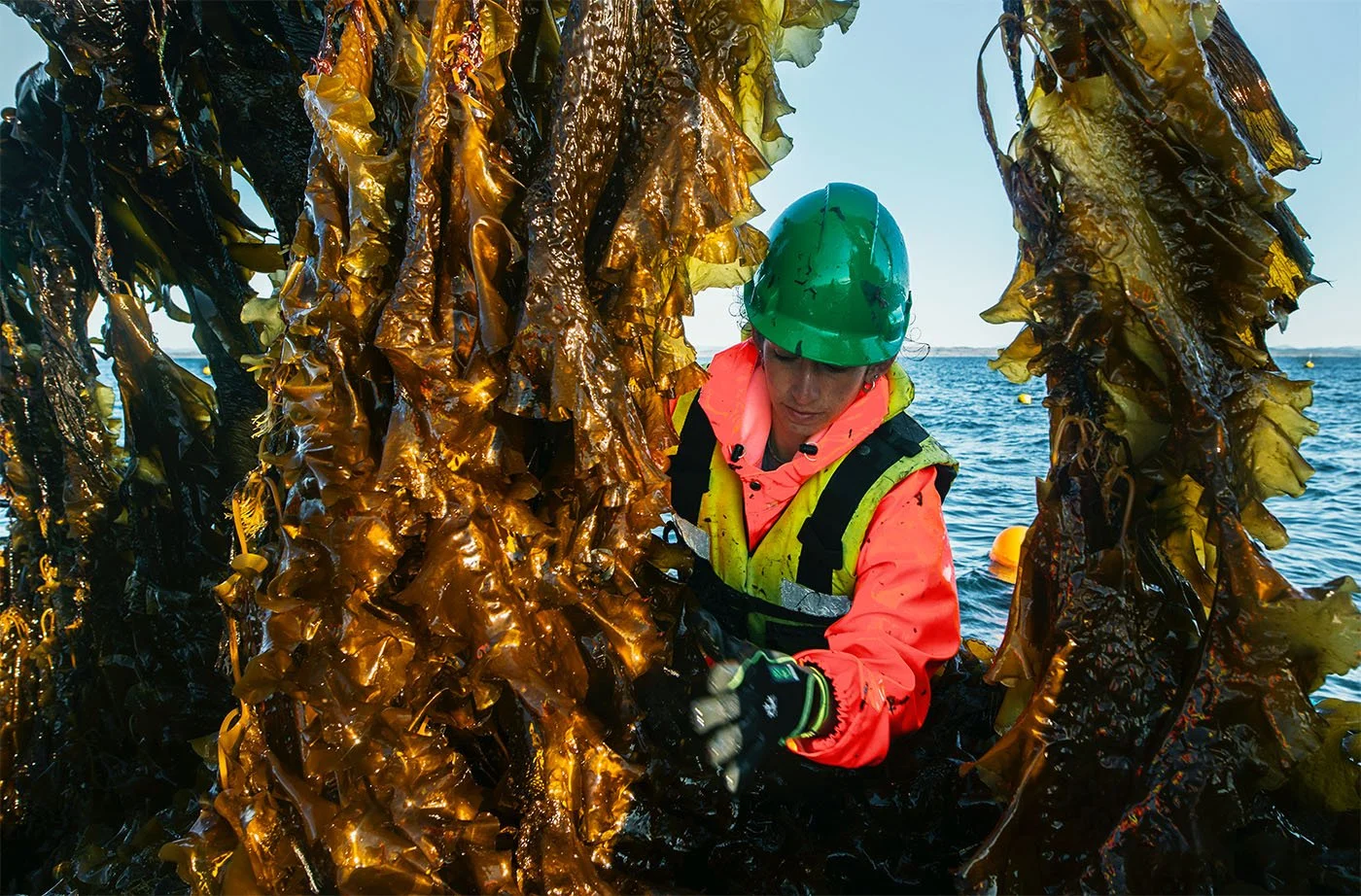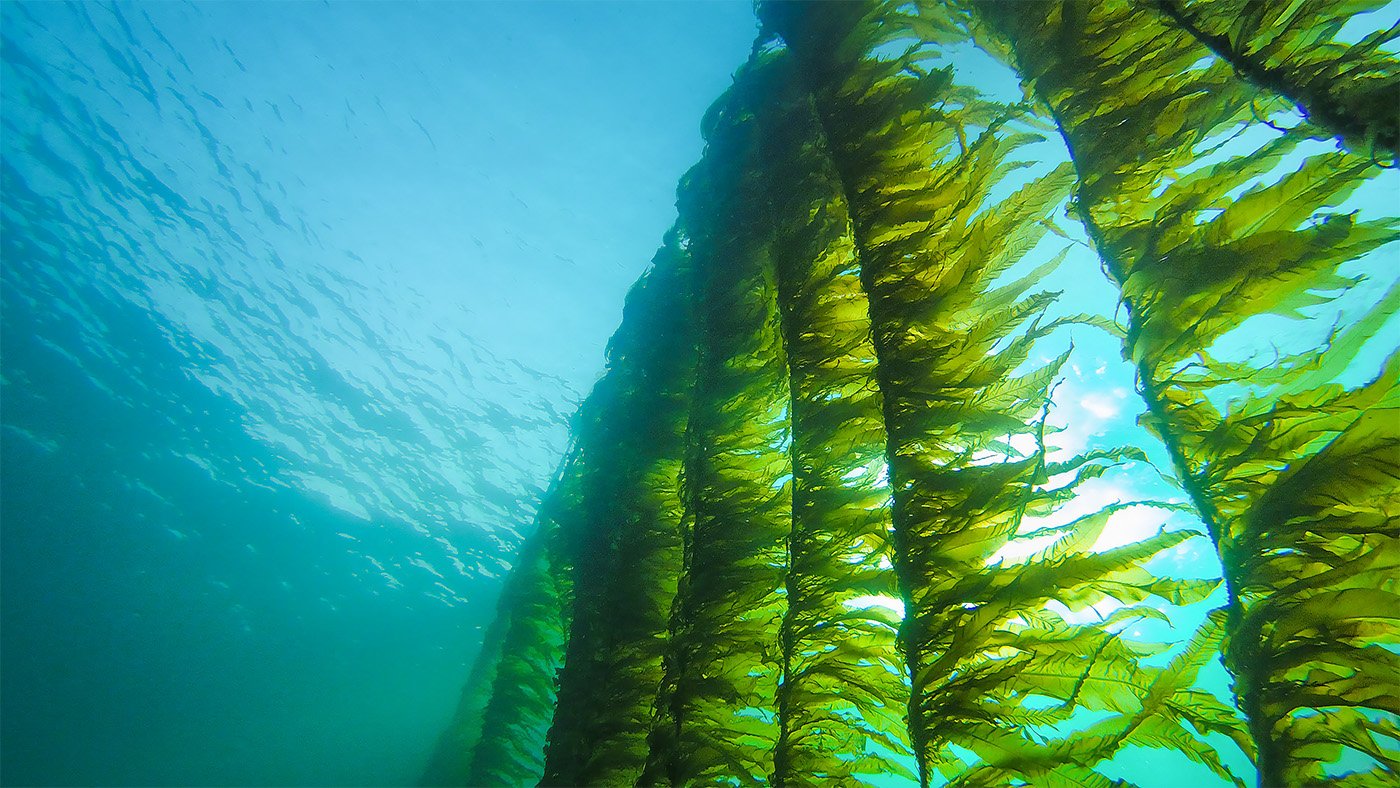
We’re leading the global effort to quantify seaweed carbon sequestration.
Launched in September 2020, The Global Seaweed Carbon Project aims to harness the power of seaweed farming to mitigate climate change and restore ocean health.
Harnessing the power of seaweed for climate restoration
Seaweed farming holds immense potential as a natural solution to climate change, ocean restoration, and sustainable economic development. By capturing carbon dioxide, revitalizing marine ecosystems, and providing economic benefits to coastal communities, seaweed aquaculture addresses some of the most pressing environmental challenges of our time.
By quantifying the carbon sequestration of macroalgae (seaweed) beneath seaweed farms, we are creating a pathway to a new blue carbon market that can drive sustainable growth. This project enhances understanding of seaweed farming’s role in capturing carbon, attracts investment, and generates additional revenue streams for farmers while restoring marine ecosystems. Our ultimate goal is to create the conditions needed to scale up seaweed farming, potentially removing gigatons of atmospheric CO₂ and regenerating our oceans.
“We have a narrow window of opportunity to deliver a healthy ocean to our grandchildren’s generation, and to create sustainable enterprises along the way. This study will help accelerate progress by creating evidence-based pathways to restore oceans and the climate through innovative, market-based sustainability solutions.”
— Dr. Carlos Duarte
Building on our vision for abundant oceans
Oceans 2050 was founded on a mission to restore ocean abundance, and seaweed farming is a key part of the solution.
Unlike many nature-based climate solutions, seaweed farming has the potential to scale rapidly while providing economic benefits to coastal communities.
Our Chief Scientist, Professor Carlos Duarte, a leader in ocean ecology who coined the term “Blue Carbon,” highlighted the role of macroalgae in carbon sequestration through groundbreaking research in 2016. His work found that seaweed contributes significantly to carbon stored in ocean sediments.
The promising findings from initial studies—showing that seaweed farms release carbon that may be sequestered in sediment—prompted us to take this research global. We launched the Global Seaweed Project to validate these early results with a comprehensive global study across 20 seaweed farms in 12 countries on five continents. This project also aims to create a carbon accounting methodology, allowing seaweed farmers to monetize their carbon impact.
Meet our partner
seaweed farms
Our study spanned five continents, with scientific research conducted at 20 seaweed farms in countries including Japan, Indonesia, Norway, and Chile. We partnered with leading scientific laboratories in Spain, Australia, and Monaco to analyze data and develop robust methodologies.
Canada
Cascadia Seaweed 1
Cascadia Seaweed 2
Chile
Maulin River
Pudeto River
China
Taohua Island - Province Zhejiang
Dongtou - Province Zhejiang
Ningde - Province Fujian
Denmark
Hjarnø Hage
France
Algolesko
Indonesia
Nain Island
Seriwe Bay
Madagascar
Ocean Farmers
Malaysia
Semporna
Norway
Seaweed Solutions AS
USA
Atlantic Sea Farms
Japan
Ariake Sea
Seto Inland Sea
Tokyo Bay
Korea
Myengji - Busan
Dadae - Busan
Mundong-ri - Busan
“We are proud of our global network of seaweed farms, involving about 27,000 farmers; the first ever of this nature, which has allowed us to assess carbon sequestration benefits but has also provided evidence of the huge positive social impact seaweed farming brings to coastal communities, empowering the role of women who make up the majority of seaweed farmers”
— Alexandra Cousteau

In 2021, Oceans 2050 was honored with the prestigious Keeling Curve Prize, an award recognizing outstanding initiatives to reduce greenhouse gas emissions.
Winning this prize is a significant milestone for our project because it amplifies the importance of scaling up seaweed farming as a climate solution. The Keeling Curve Prize validates the impact of our work and helps attract further investment and support, enabling us to accelerate the expansion of the blue carbon market. This recognition positions Oceans 2050 as a global leader in ocean-based climate solutions, demonstrating that seaweed farming is a scalable, practical, and vital tool for addressing the climate crisis.
Advancing the science of seaweed carbon sequestration
We have conducted a 15-month study to deliver evidence and methodology to validate and monetize the carbon sequestration impact of seaweed farming. This study builds upon Professor Duarte’s published research on ocean restoration by further assessing the role of seaweed aquaculture as a key recovery wedge for the world’s oceans and the climate.
Despite the challenges of executing global sampling logistics during a pandemic, the first stage of science has been completed. While findings are under peer review, the initial results were presented during Seaweed Day at Monaco Ocean Week in 2022.
In relation to the project, Professor Duarte et al. published “A seaweed aquaculture imperative to meet global sustainability targets” in Nature Sustainability on October 7, 2021. This paper emphasizes that scaling up seaweed aquaculture is essential to accommodate a growing global population while advancing many of the United Nations Sustainable Development Goals.
Our global network involves leading seaweed scientists and seaweed farm operators who are sampling sediments, advancing the science, and ultimately creating market incentives for seaweed aquaculture as a solution to address the climate crisis while contributing to ocean restoration.
Together with the farmers and our research partners, we developed a methodology to assess carbon sequestration based on the accumulation of carbon stocks, analyzed by Professor Antonio Delgado at the Andalusian Institute of Earth Sciences (Granada, Spain), and the age of the different soil horizons, assessed by Dr. Pere Masqué from the International Atomic Energy Agency of the UN in Monaco.
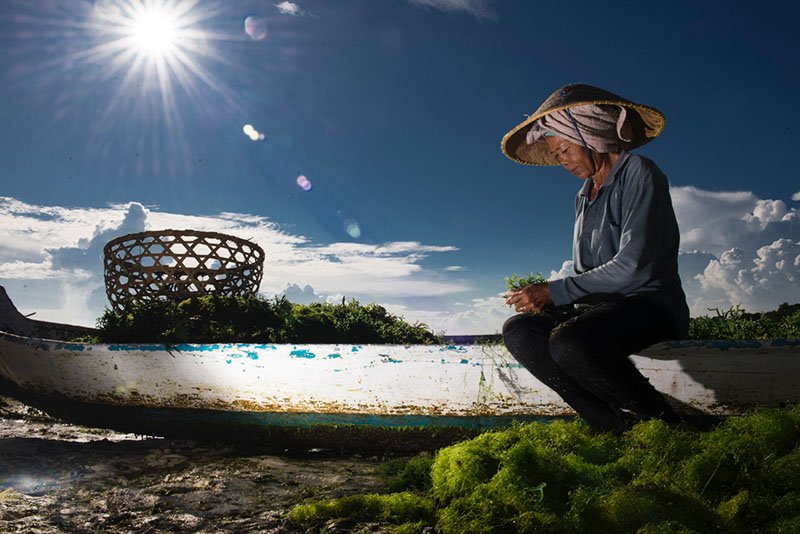
Seaweed farmer in Indonesia (Photo by Carol Da Riva)
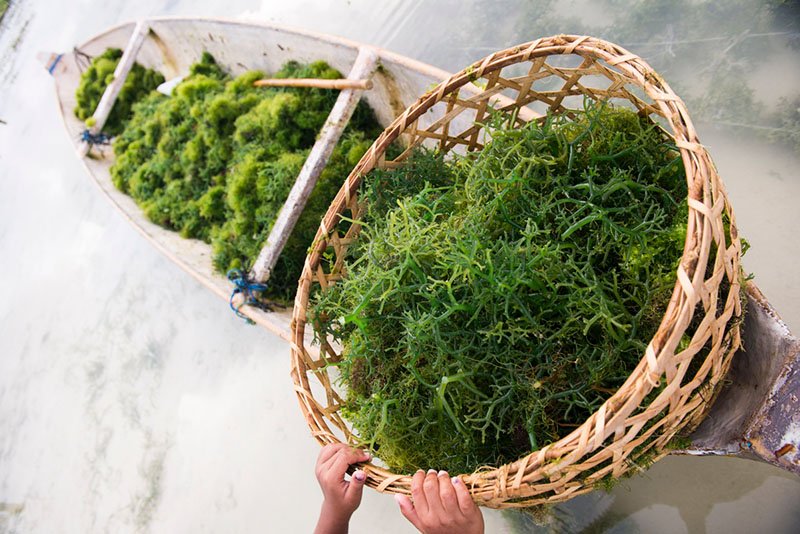
Seaweed farm in Indonesia (Photo by Carol Da Riva)
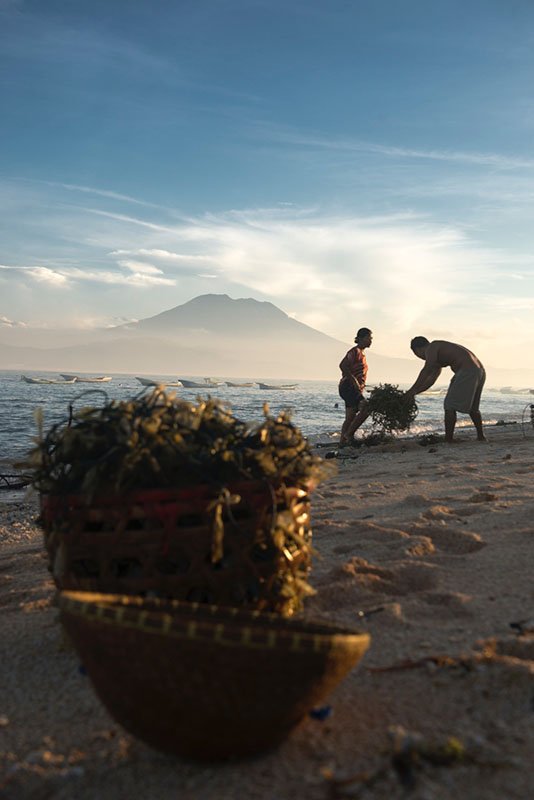
Seaweed farmers in Indonesia (Photo by Carol Da Riva)

Seaweed farmers in Indonesia (Photo by Carol Da Riva)

Seaweed farmer in Indonesia (Photo by Carol Da Riva)
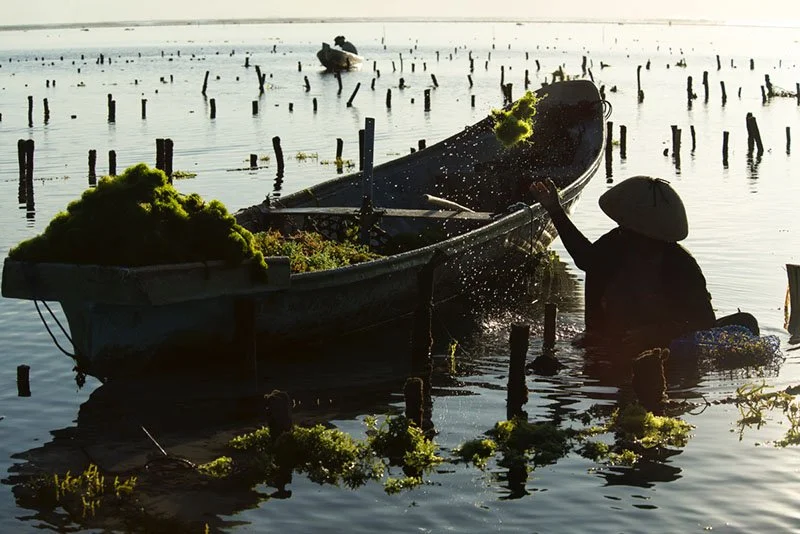
Seaweed farmer in Indonesia (Photo by Carol Da Riva)
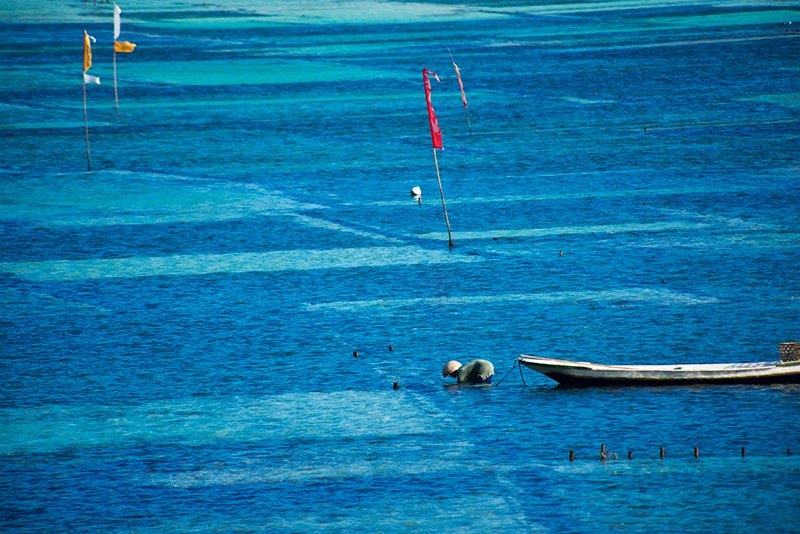
Seaweed farmer in Indonesia (Photo by Carol Da Riva)

Seaweed farmer in Indonesia (Photo by Carol Da Riva)
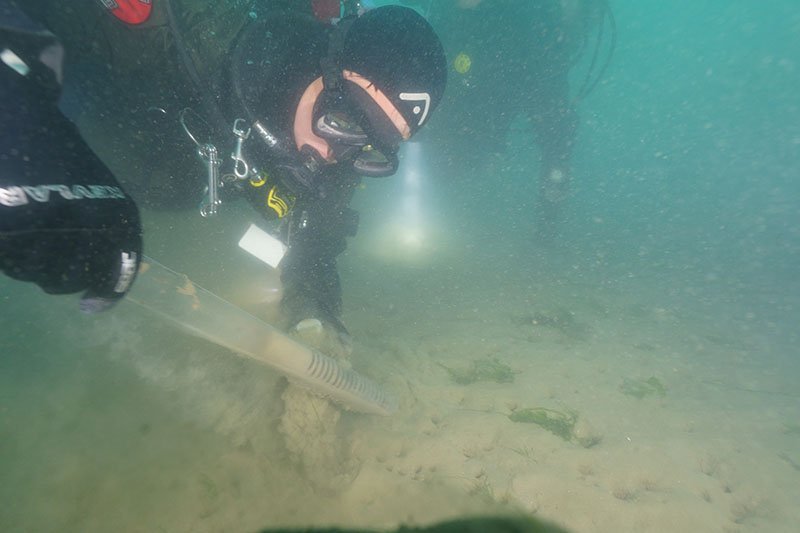
Collecting Ulva lactuca samples in South Korea
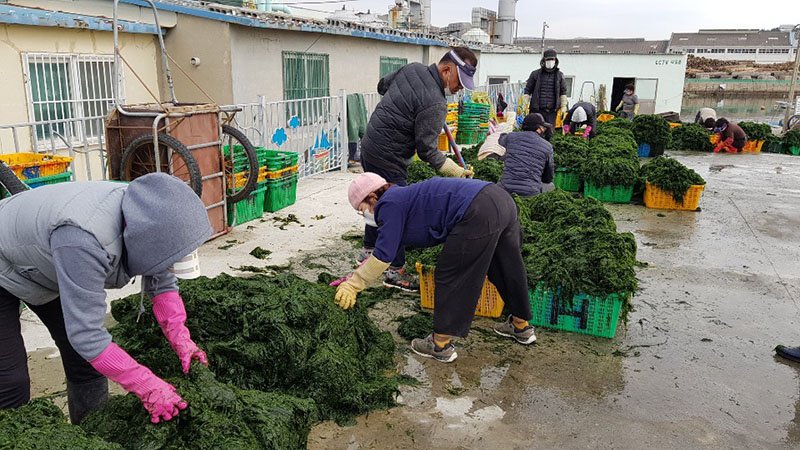
Farming Ulva lactuca in South Korea
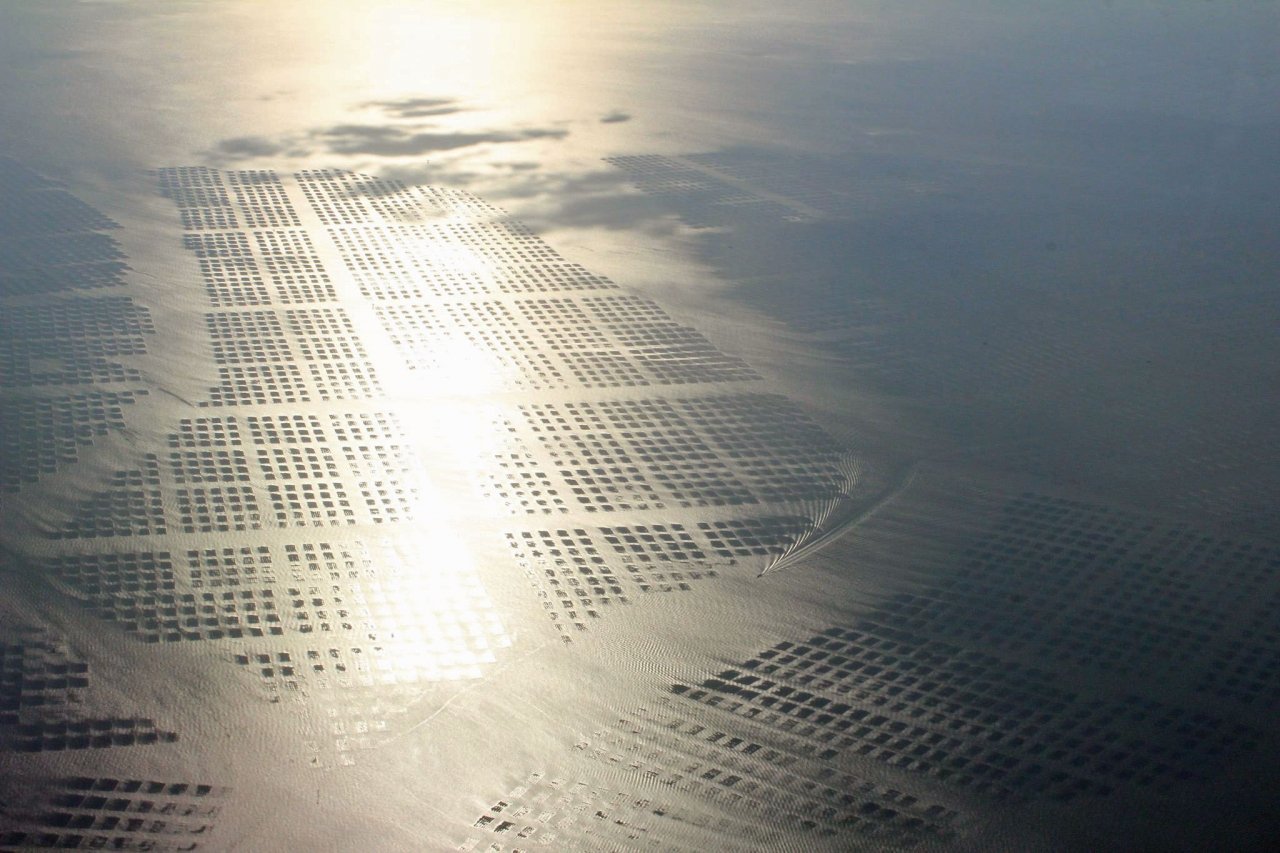
Nori seaweed farm in Japan
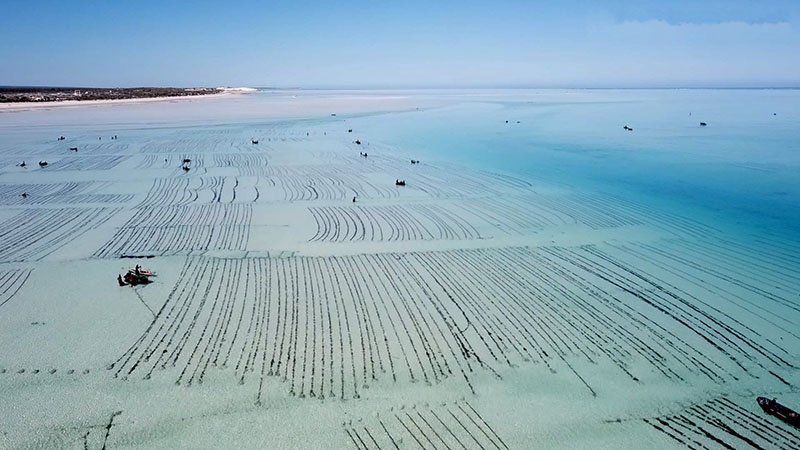
Seaweed farm in Madagascar (Photo by Ocean Farmers)
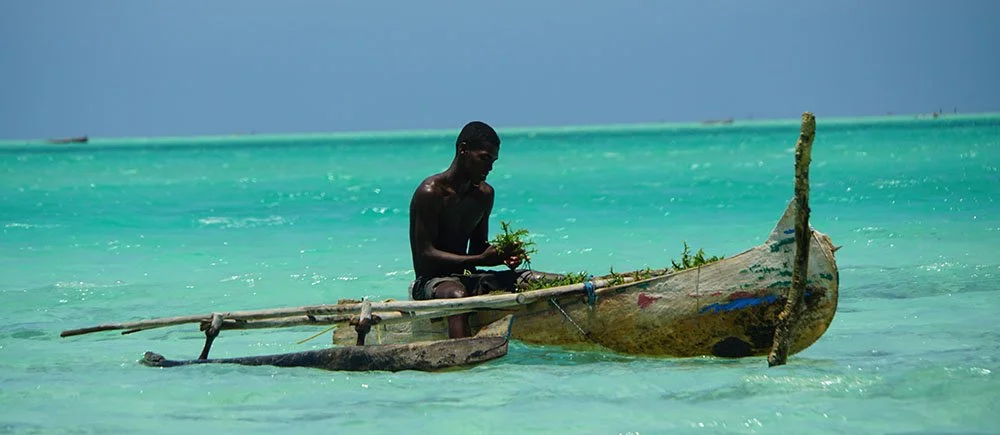
Seaweed farmer in Madagascar (Photo by Ocean Farmers)
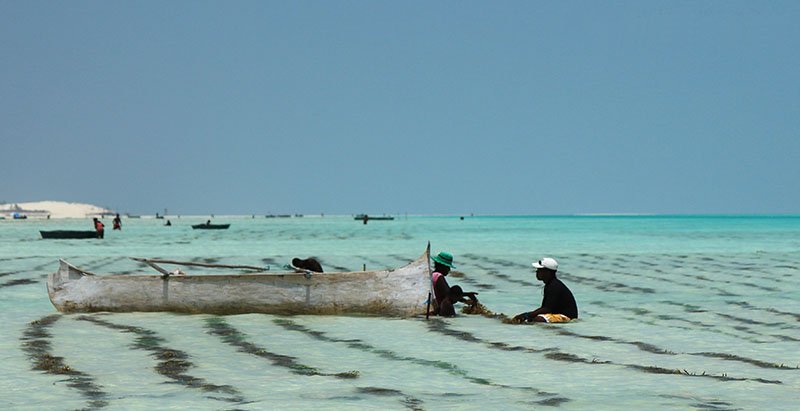
Seaweed farmers in Madagascar (Photo by Ocean Farmers)
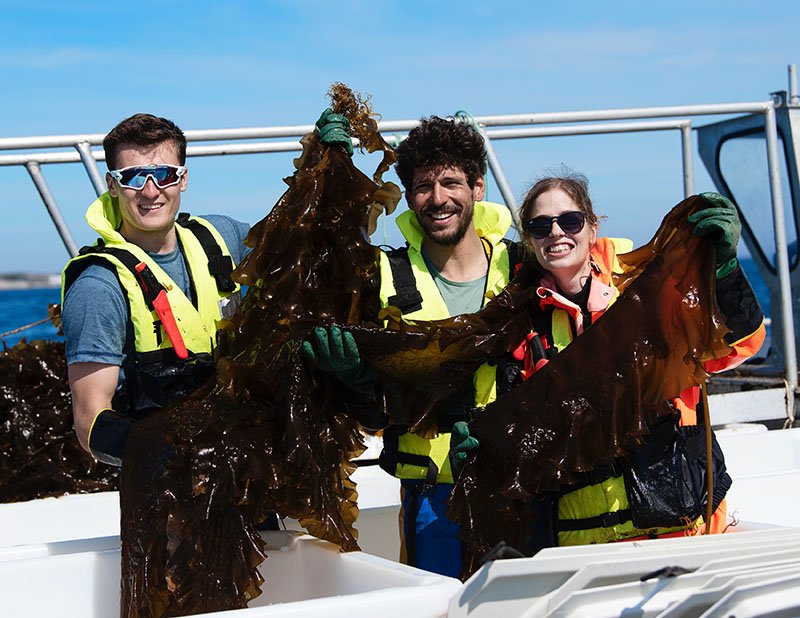
Seaweed farmers in Norway (Photo by Seaweed Solutions)
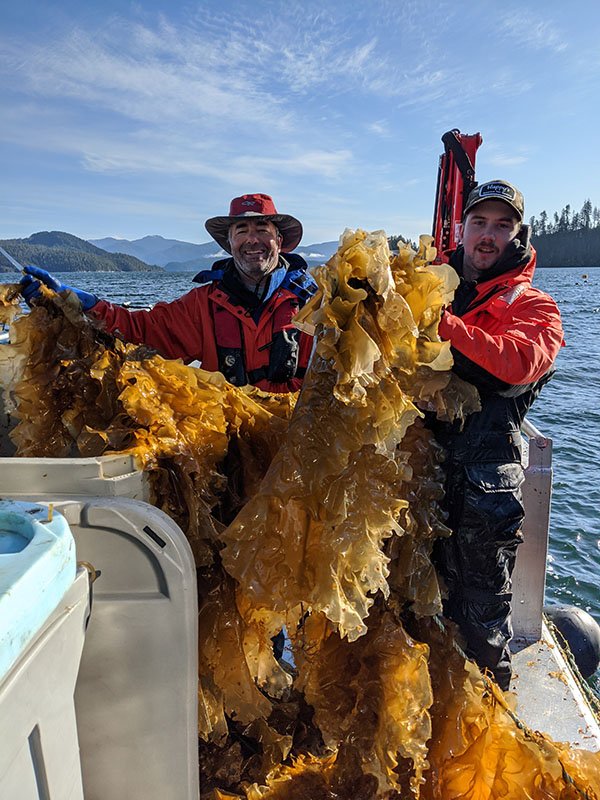
Seaweed farmers in Canada (Photo by Cascadia Seaweed)
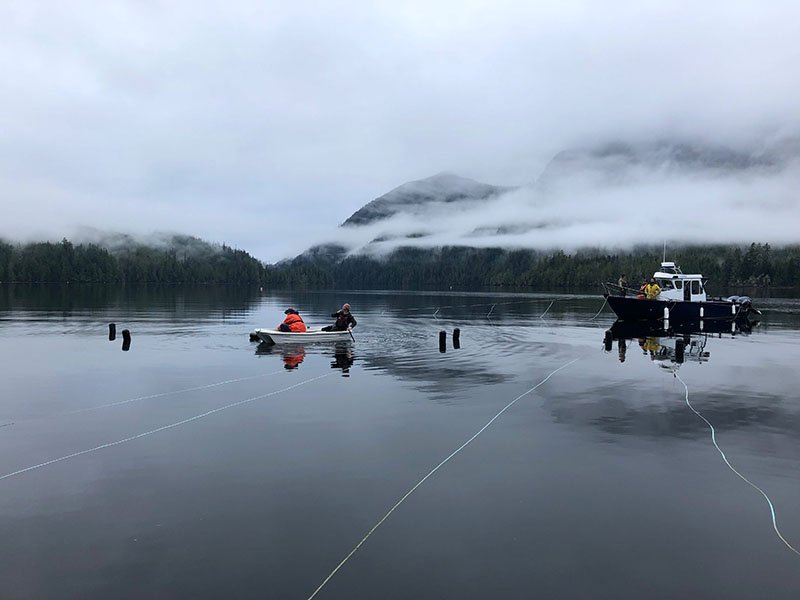
Seaweed farmers in Canada (Photo by Cascadia Seaweed)
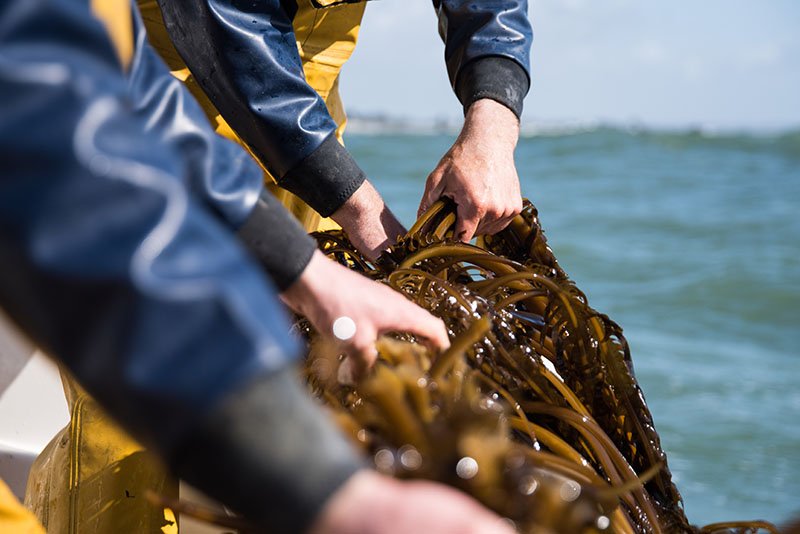
Seaweed farmers in France (Photo by Algolesko)
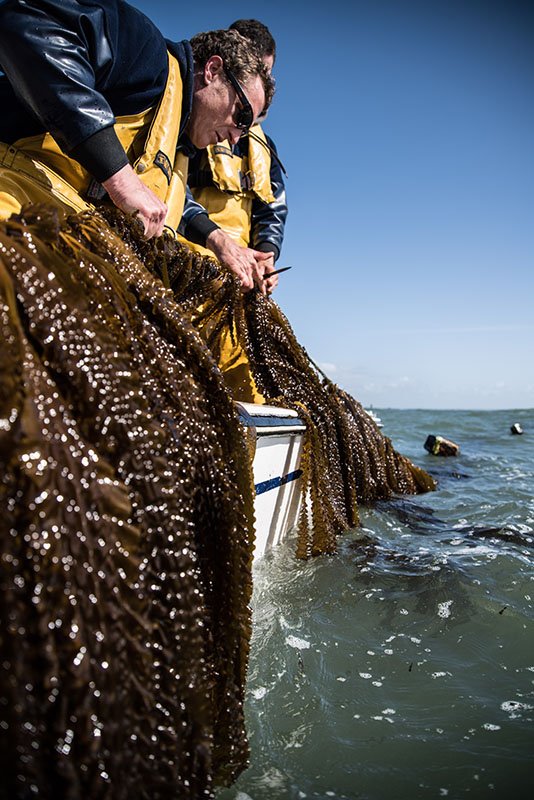
Seaweed farmers in France (Photo by Algolesko)
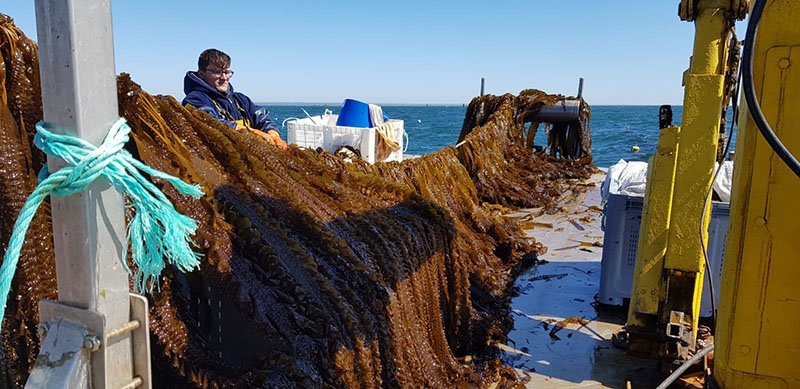
Seaweed farmers in France (Photo by Algolesko)
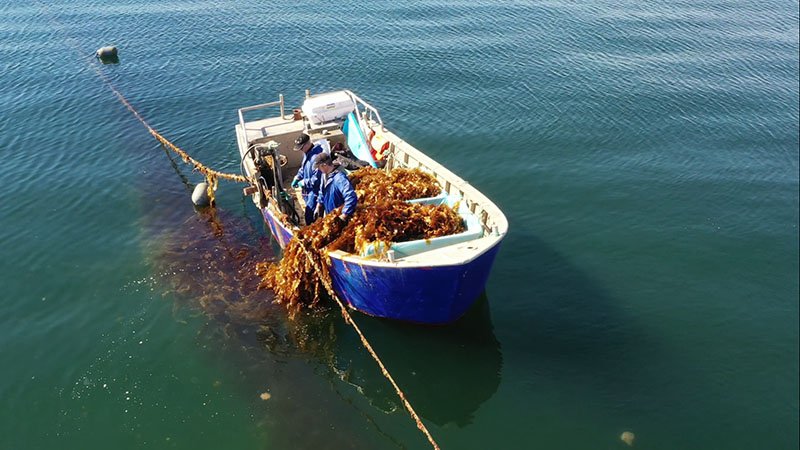
Seaweed farmers in Denmark
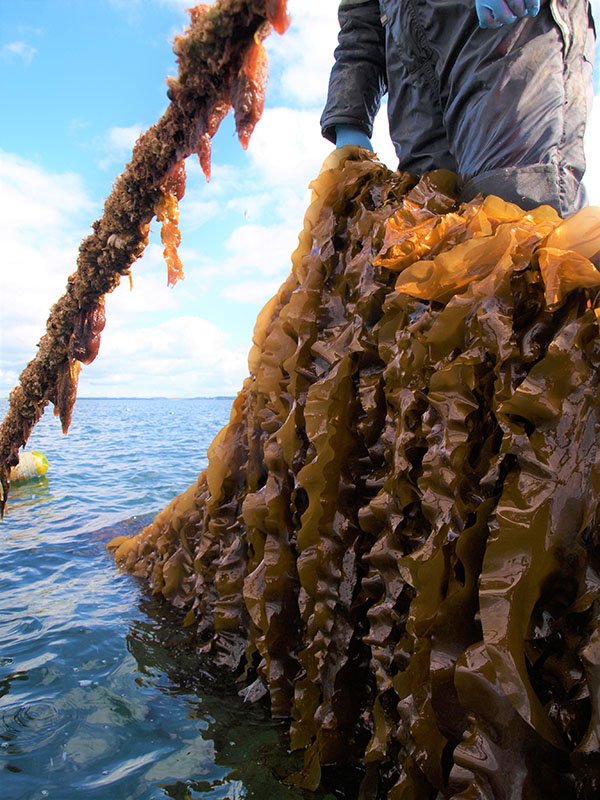
Seaweed farmer in Denmark

Wakame (Photo by Algolesko)
Results
The results of our study are now published in Nature Climate Change. Based on these results, we are developing and will submit for approval a methodology in the voluntary carbon offset market.
Once approved, the methodology will make possible the issuance of carbon credits by seaweed farms to global buyers, enabling these restorative enterprises to benefit financially from the tons of CO₂ their farms currently sequester. This will create a new, scalable blue carbon market and catalyze global expansion of this sustainable solution to climate change and ocean degradation.
We are setting a robust scientific foundation to support the development of a new voluntary carbon protocol for seaweed aquaculture, which will be a public good and allow seaweed farmers to monetize the carbon impact of their activities for the first time. By creating these enabling conditions to scale up seaweed farming, we will help restore the ocean, potentially remove gigaton-scale atmospheric CO₂, and create a new blue economy to help regeneratively feed and power the world.
By focusing on scientific validation and market creation, the Global Seaweed Project embodies our commitment to innovative, collaborative solutions for ocean restoration and climate action. We are excited about the path ahead and the profound impact this work will have on our oceans and our planet.
Study Results
“Creating carbon credits for seaweed farming will allow corporations and others to invest in blue carbon credits at a much larger scale than is available today, and with very meaningful co-benefits in the restoration of the oceans and the livelihoods of all that depend on them.”
—Megan Reilly Cayten, Oceans 2050 Project Lead
Our Supporting Partners
-

Climate Works Foundation
ClimateWorks is a global platform for philanthropy to innovate and scale high-impact climate solutions that benefit people and the planet. We deliver global programs and services that equip philanthropy with the knowledge, networks, and solutions to drive climate progress for a more sustainable and equitable future.
-

Grantham Foundation
The Jeremy and Hannelore Grantham Environmental Trust is a public charity and 509(a)(3) supporting organization focused on reducing and reversing global environmental degradation. Its independent (majority) trustees are the CEOs of Rare, The Nature Conservancy, World Wildlife Fund US and Rocky Mountain Institute.
-
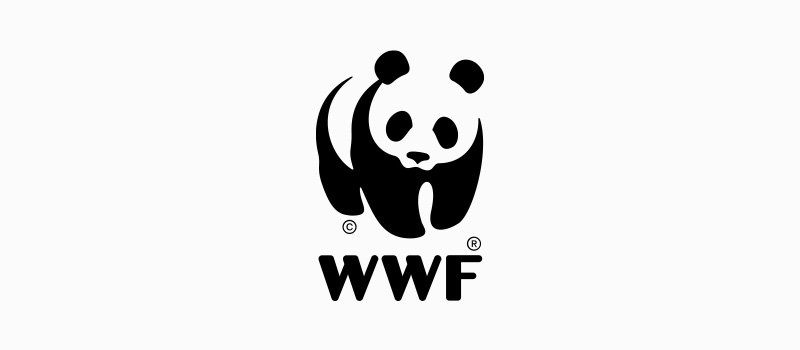
World Wildlife Fund
For more than 60 years, WWF has worked to help people and nature thrive. As the world’s leading conservation organization, WWF works in nearly 100 countries. At every level, we collaborate with people around the world to develop and deliver innovative solutions that protect communities, wildlife, and the places in which they live.
-
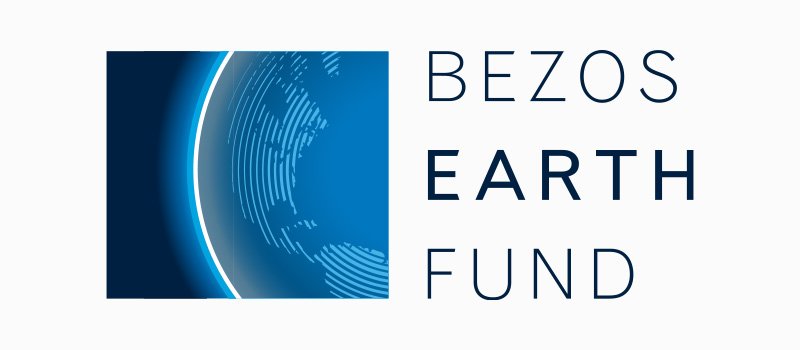
Bezos Earth Fund
The Bezos Earth Fund was established with the largest philanthropic commitment ever to fight climate change and protect nature. We aim to harness the best of human ingenuity, adaptability, and collective action to create a future in which everyone can thrive.
“Seaweed cultivation is gaining momentum as a potentially scalable nature-based solution to carbon dioxide removal but we know far too little about its real sequestration potential. On my knowledge, this Oceans 2050 project is the most ambitious and robust study to date estimating the pre-harvest sequestration benefit of macro algae cultivation.”
—Antonius Gagern, CEA Consulting, Consultant to ClimateWorks Foundation
From science to storytelling
While advancing the science around the relationship between carbon and seaweed farms, we partnered with WWF to film stories about how seaweed farming and local communities intersect.
We created a series of films and events to promote real stories of seaweed farmers and the communities that benefit from their work. As fishing stocks are challenged, coastal and Indigenous communities can benefit from scaling up seaweed farming, providing income alternatives with sustainable jobs.
Seaweed Resources
-
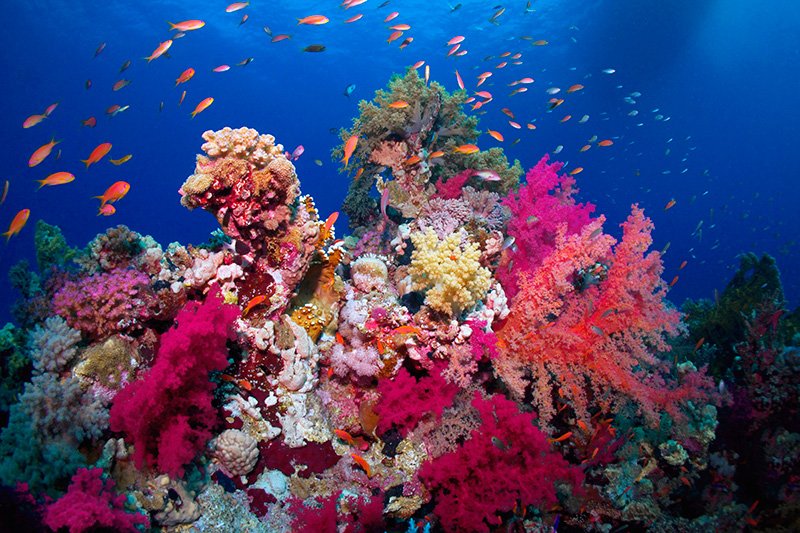
Rebuilding marine life
Substantial recovery of the abundance, structure and function of marine life could be achieved by 2050, if major pressures—including climate change—are mitigated. Rebuilding marine life represents a doable Grand Challenge for humanity, an ethical obligation and a smart economic objective to achieve a sustainable future.
-
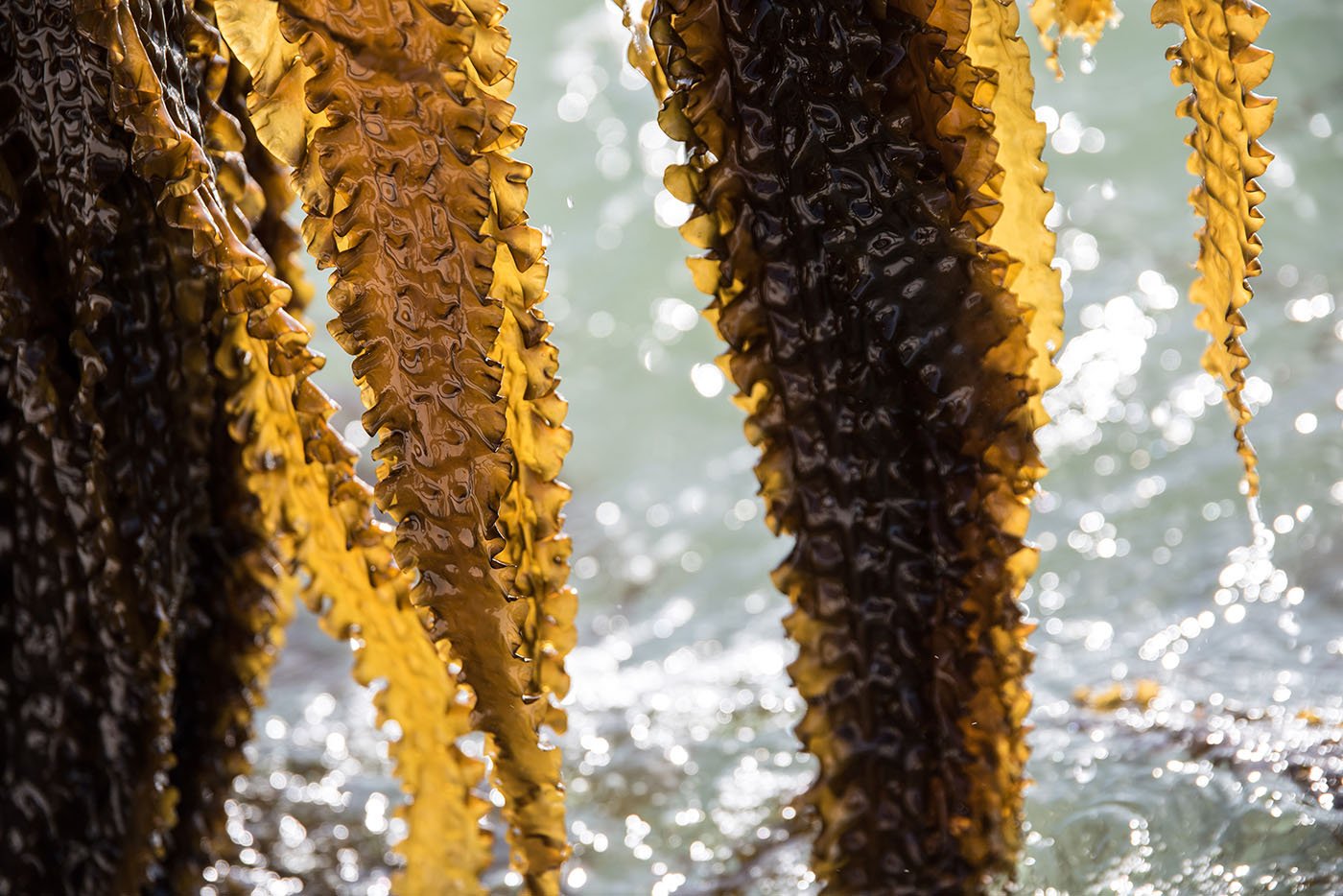
Nutrient removal from Chinese coastal waters by large-scale seaweed aquaculture
Chinese seaweed aquaculture annually removes approximately 75,000 t nitrogen and 9,500 t phosphorus, improving water quality and mitigating harmful algal blooms.
-

Resource (light and nitrogen) and density-dependence of seaweed growth
Adjusting the number of seaweed plants grown together can boost growth, especially in areas with low nutrients or light. By managing density, we can improve growth rates and increase sustainable seaweed production.
-

Can seaweed farming play a role in climate change mitigation and adaptation?
Seaweed aquaculture, the fastest-growing component of global food production, offers a slate of opportunities to mitigate and adapt to climate change.
-
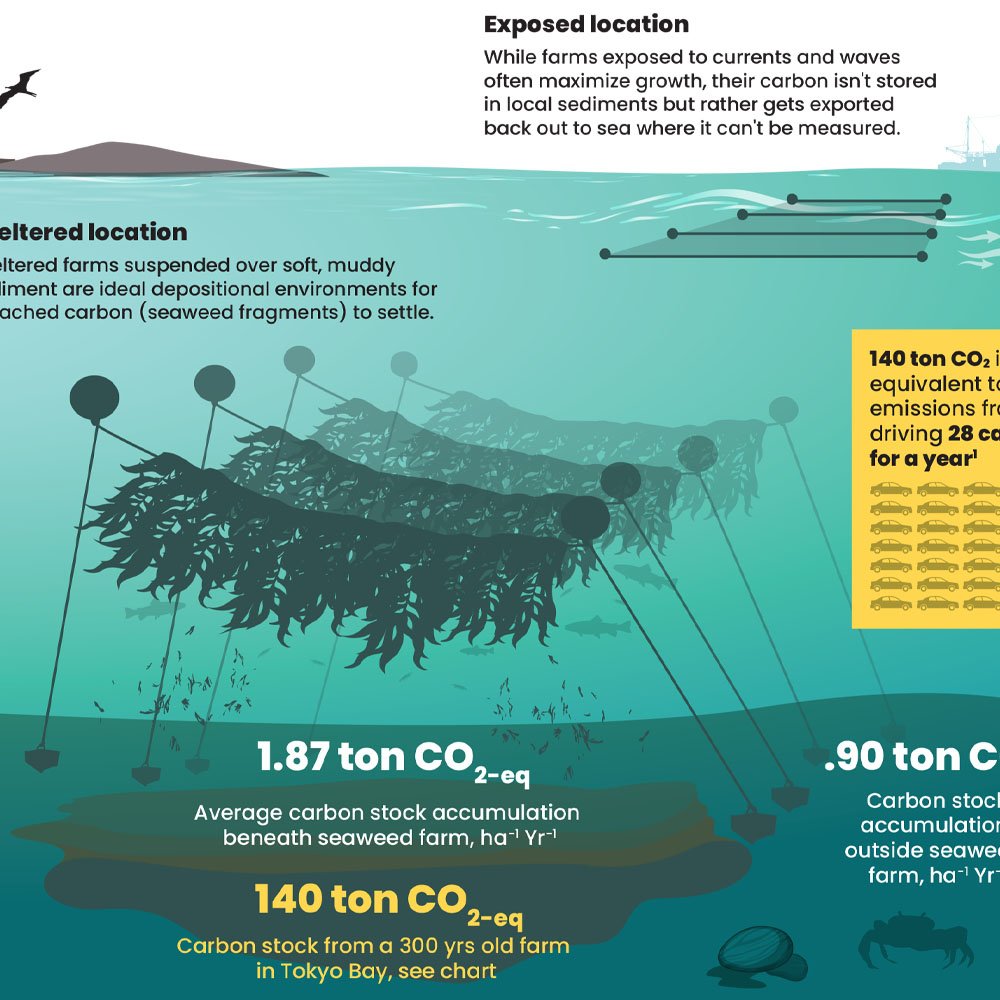
Climate Change Mitigation as a Co-Benefit of Seaweed Farming
Carbon sequestration, when greenhouse gases are kept out of the atmosphere for significant periods of time, is needed to address climate change.

“Oceans 2050’s vision is to implement a step change in the scale up of seaweed aquaculture—creating the enabling conditions for millions of people around the globe to become ocean farmers. Doing so will set seaweed farming on track to sequester gigatons of carbon CO₂, help to restore abundance to the ocean and create a new, socially just blue economy to help feed and power the world in a regenerative way.”
—Alexandra Cousteau

